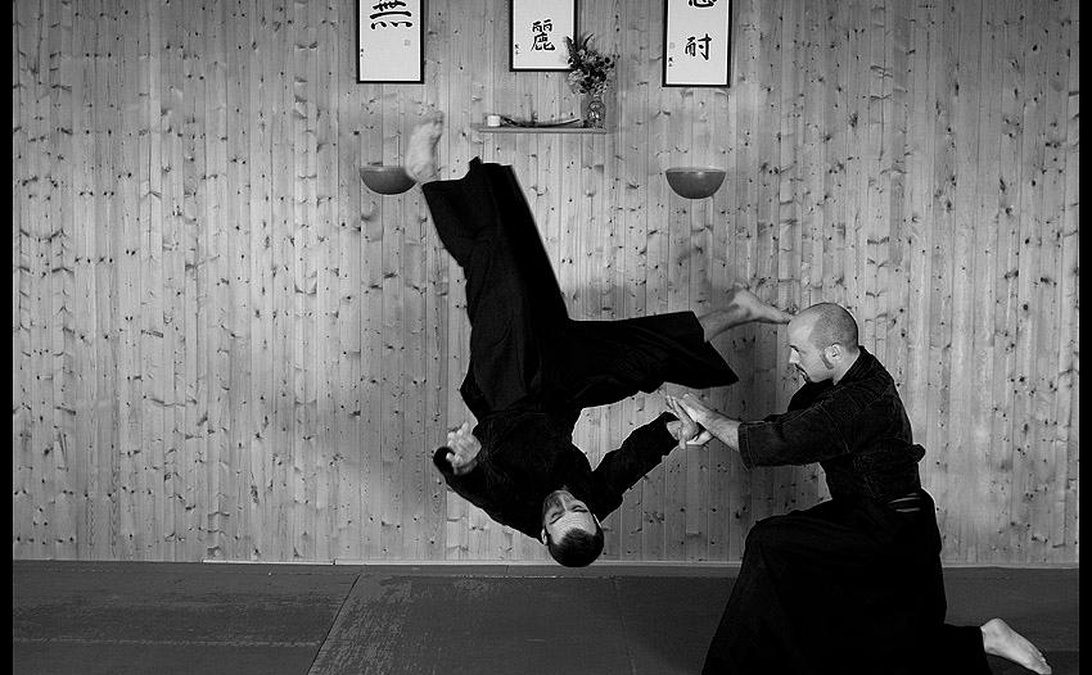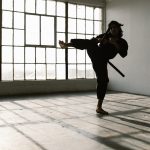
The Mental Health Benefits of Regular Martial Arts Practice
For centuries, martial arts have been recognized for fostering physical discipline, coordination, and self-defense skills. However, beyond the physical prowess honed in the dojo, lies a profound capacity to cultivate mental resilience and emotional well-being. As someone who has dedicated decades to exploring various martial arts disciplines, I’ve witnessed firsthand how this ancient practice offers a powerful pathway to a healthier mind. In recent years, Western psychology has increasingly acknowledged these benefits, coinciding with the rising popularity of disciplines from traditional Karate to modern Mixed Martial Arts (MMA). This article delves into the compelling ways regular martial arts practice can positively transform your mental landscape.
Beyond physical prowess: Unlocking mental resilience through martial arts
While the image of martial arts often involves dynamic movements and combat readiness, its true depth lies in the integration of mind, body, and spirit. Many traditional martial arts are deeply rooted in philosophies like Buddhism and Taoism, which emphasize character development, ethical conduct, and self-awareness alongside physical techniques. This holistic approach distinguishes martial arts from conventional exercise. It’s not just about getting fit; it’s about forging a stronger, more centered self. Experienced instructors often share stories of students undergoing profound personal transformations, moving beyond mere physical improvement to achieve significant psychosocial growth, though these often subtle benefits are sometimes understated compared to the more visible physical gains.
The foundation for improved mental health often begins with enhanced self-perception. General fitness training is known to boost self-esteem and confidence, and martial arts builds upon this significantly. The structured progression, mastering complex techniques, and overcoming physical and mental challenges inherent in training foster a powerful sense of accomplishment. Studies consistently link martial arts practice to improvements in self-esteem, greater autonomy, enhanced emotional stability, and increased assertiveness. This is further amplified by the core values embedded within many disciplines – respect, sincerity, perseverance – which contribute to mental relaxation and a greater sense of control over both mind and body. You learn not just how to move, but how to be.
A key mechanism through which martial arts benefits the mind is its inherent meditative quality. Practices like kata (pre-arranged forms found in arts like Karate) demand focus, precision, balance, and coordination. When performed with attention to breath control and fluid motion, these forms become a type of moving meditation. This practice cultivates mindfulness and a deeper connection between mind and body, training you to remain present and aware, quieting the mental chatter that often fuels anxiety and stress. This mindful presence, honed on the training floor, gradually extends into daily life, promoting greater calm and clarity.
Sharpening the mind: Cognitive enhancement and emotional regulation
Martial arts training is a potent tool for cognitive enhancement. The constant need for focus, whether executing a precise technique, learning a complex sequence, or reacting dynamically in sparring, sharpens concentration and attention span. Research, particularly studies involving young people and even at-risk youth, has demonstrated significant improvements in executive functions. Engaging in martial arts has been shown to enhance cognitive functions like processing speed and inhibitory control – the ability to suppress impulsive reactions and maintain focus on goals. This ‘brain training’ aspect is crucial, as better executive function underpins self-regulation, academic success, and overall psychological well-being.
The discipline instilled through regular training is fundamental to emotional regulation. Martial arts teaches self-control in demanding situations – remaining calm under pressure during sparring, pushing through fatigue during drills, and maintaining respect even when challenged. This structured environment provides a safe space to confront difficulties and develop coping mechanisms. Learning to manage frustration when a technique proves difficult, or controlling impulsive reactions, builds mental fortitude and resilience. Research focusing on traditional practices like Karate highlights the link between traditional martial arts components and improved mental well-being, particularly noting that elements like kata and respect are associated with lower aggression and better frustration tolerance.
For many, martial arts provides significant relief from symptoms of anxiety and depression. The vigorous physical exertion releases endorphins, the body’s natural mood elevators, leading to an immediate sense of well-being post-training. Furthermore, the intense focus required acts as a powerful form of mindfulness, pulling your attention away from cyclical negative thoughts and grounding you firmly in the present moment. As practitioners of arts like Brazilian Jiu-Jitsu often report, the need for complete focus during training leaves little mental space for worry or rumination, making it a powerful tool for improving overall mental well-being. Consistent practice has been linked in multiple studies to notable reductions in both anxiety and depressive symptoms.
Interestingly, the intensity of your training appears to play a role in the extent of these psychological benefits. While any physical activity is beneficial, some research suggests that more intense training sessions may yield greater mood improvements. A study comparing regular Brazilian Jiu-Jitsu practitioners with individuals engaged in general gym workouts found the BJJ group reported higher energy levels, agreeableness, and confidence, perceiving their training as more intense. This aligns with broader findings indicating a correlation between exercise intensity and improved mood, suggesting that the demanding nature of many martial arts disciplines contributes significantly to their mental health advantages.
Cultivating character: Values, community, and personal growth
Beyond techniques and physical conditioning, traditional martial arts place a strong emphasis on character development. Core values such as respect, integrity, humility, perseverance, self-control, and responsibility are woven into the fabric of training. These aren’t just abstract concepts; they are actively practiced – bowing before entering the mat, showing respect to instructors and training partners, taking responsibility for one’s actions, and persevering through difficult training. This focus on ethical conduct provides a moral compass and fosters personal growth. Embracing these principles aligns well with concepts in Positive Psychology in Martial Arts, contributing to a more balanced and fulfilling life.
The social environment of a martial arts school, or ‘dojo’, offers unique benefits. Training alongside others fosters a sense of community, camaraderie, and belonging, which is crucial for mental well-being. Sharing the challenges and successes of training builds strong bonds and mutual respect. This supportive network combats feelings of isolation and provides encouragement, reinforcing the idea that positive social connections are vital for mental well-being. Instructors and senior students often serve as positive role models, offering guidance and mentorship, which can be particularly impactful for younger practitioners.
It’s important, however, to approach claims about mental health benefits with some nuance. The quality of instruction and the philosophy of the school matter immensely. While traditional martial arts often emphasize self-control and respect, potentially leading to decreased aggression, some schools might focus more heavily on competition or aggression. Research has shown mixed results regarding benefits for children, particularly concerning the generalization of improved behaviour to settings like school. One large study, for instance, found no significant link between martial arts participation and teacher-reported classroom behaviour, suggesting outcomes can be complex and perhaps dependent on the specific teaching style and focus. This highlights why critical evaluation is needed, as suggested by articles questioning if Martial arts may not provide mental health benefits to kids universally without considering the teaching context.
The journey in martial arts is often a long-term commitment marked by incremental progress, symbolized by belt ranks in many systems. This process inherently involves goal setting, perseverance, and dedication. Achieving milestones, whether mastering a new technique or attaining a higher rank, builds confidence and reinforces a strong work ethic. This journey fosters not only physical skill but also mental resilience and a deeper understanding – a form of wisdom that extends beyond combat. Consistent, long-term engagement is often key to unlocking The psychological implications of martial arts training, leading to lasting personal development.
Forging inner strength: Integrating mind and body for lasting well-being
Ultimately, the practice of martial arts offers a holistic path to well-being, intricately weaving together physical fitness, mental acuity, emotional regulation, and character development. It’s a discipline that challenges you to push your limits, confront your fears, and cultivate a deep sense of self-awareness. The benefits extend far beyond the ability to defend oneself; they permeate daily life, enhancing focus at work, improving relationships through better emotional control, and building the resilience needed to navigate life’s inevitable challenges.
The transformative power of martial arts lies in its consistency and its integration of action and philosophy. Regular, dedicated practice, especially within a framework that honors traditional values like respect, discipline, and mindfulness, allows these benefits to take root and flourish. It’s about showing up, putting in the effort, and engaging fully – mind and body – in the process. The physical movements become a vehicle for mental refinement, and the mental discipline enhances physical performance.
Embarking on a martial arts journey is less about reaching a final destination and more about the continuous process of self-discovery and improvement. It teaches that true strength isn’t just about physical power, but about inner fortitude, emotional balance, and a disciplined mind. In a world that often feels fragmented and stressful, martial arts provides a grounding practice, a supportive community, and a time-tested method for forging profound inner strength and achieving lasting well-being, reflecting the positive psychosocial outcomes associated with traditional martial arts training that researchers continue to explore.






